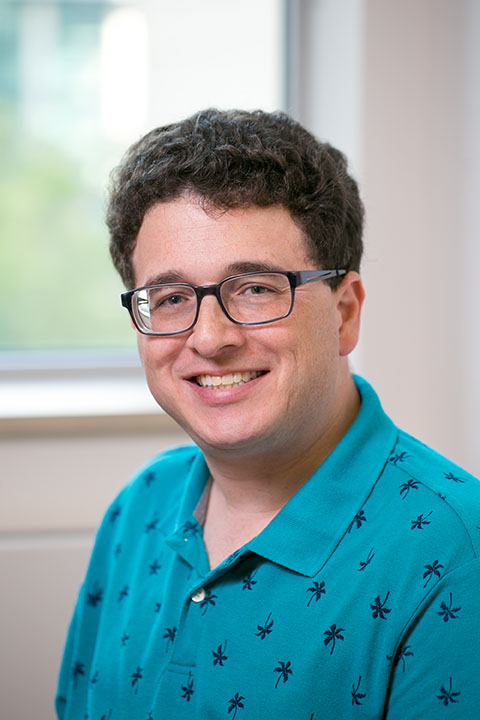Dr. Hershl Berman
Role at the CentreHome-care doctor Year started at the Centre2013 | Passion: it’s a word that crops up often when you’re in the company of palliative care physicians. It’s the one thing they all share, the common thread that runs through their characters. As a resident at Queen’s University, Hershl Berman was having a hard time finding a subspecialty in Internal Medicine that “really grabbed me with a passion.” “I had taken a course on living with a terminal illness. We were matched with a patient, and we’d sit and talk about things as a group once a week. This was when I was a first- or second-year medical student. The stuff we talked about was very interesting. Then, as a resident, I did an elective in palliative care and suddenly I’d found this specialty where I felt I was able to do tangible things for patients that took away their pain, made them more comfortable. I felt I had found my calling.” It’s the kind of work that leaves an impression: on the physician as much as on the families of the patients they treat. For Hershl, it’s made him more thankful of what he had growing up: “Grandparents who were with me, the closeness of my family. It makes me appreciate those things more. And it also helped me to prepare my children when my father was dying. Also it makes it easier to accept losing a family member. It doesn’t make it easier to lose them, but I think it makes it easier to accept that it’s happening, and understand why it’s happening and why we can’t do anything about it.” Being touched with the pain of grief and loss himself has helped him care for others. “It’s a big responsibility. I recognize that. So when I see families that are struggling with an impending loss, I do my best to help them through that process. To make the process something that won’t cause such a long lasting trauma.” “The way patients approach dying often has a great impact on the way they experience their symptoms. I remember a young woman with cancer. She never seemed to accept her mortality. It was very difficult to get her symptoms under control. Later, I looked after a patient when I was a fourth year resident. She was so at peace with herself, and though she had terrible disease in her lungs, she was comfortable. She had no pain, no shortness of breath. She required a lot of oxygen but she wasn’t suffering.“ And then there was the rabbi he cared for: “He had terrible shortness of breath. I was his Internist at the time, but the next week I was doing palliative care and I became involved for continuity of care. I remember that the Internal Medicine senior resident, who is now a palliative care doctor, spent two hours with him on-call taking down an autobiographical sermon that he wanted to write. When I saw him after that he wasn’t short of breath. He said that he’d done this for his children. They’d taken it to the synagogue. He felt he could now die in peace, and it was a complete transformation. He died a few days later. I learned a lot from that. That was over ten years ago and it’s still with me. The rabbi called it a transcendental experience.” The resident in question won an award based on his work with that patient. But it was Hershl’s grandfather who made perhaps the biggest impact on his thinking. “I was already working when he was dying. I was having a hard time accepting it. I was 37 years old and he was probably one of the closest people in my life. A couple of days before he died, he said ‘You know that it has to be like this, that’s how the world has to work.’ That has stayed with me ever since.” |





